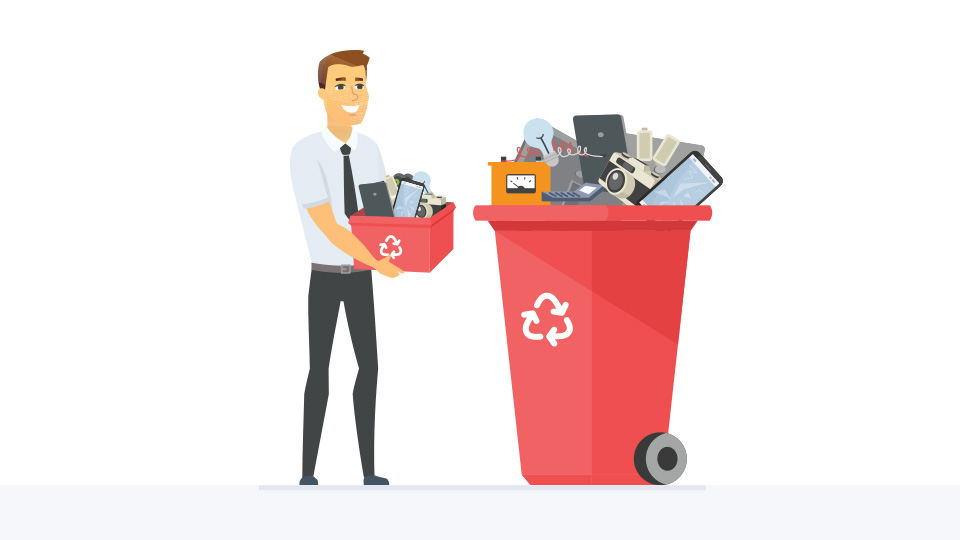
With about 50 million tonnes of e-waste generated globally, International E-waste Day is an important day to spread the word about recycling old electronics.
More than 110 organisations from 48 countries took part in the latest International E-waste Day to shine a light on e-waste and encourage the public to recycle more.
E-waste is made up of a range of products from personal devices such as smartphones to household appliances like white goods and air conditioners.
The International E-waste Day was held on October 14 and developed by the WEEE Forum, which is an international association of 40 e-waste collection schemes.
The event energised organisations to hold hundreds of activities on the day, including conferences, events, school collection days, and information campaigns in stores and recycling centres.
There were also circular economy games for schools, social media competitions, online campaigns, and temporary city centre collection points.
The activities were widely covered by media and raised the profile of e-waste recycling, while showing the public and businesses how to dispose of e-waste correctly.
The 2019 event was only second to be organised, with the number of participating organisations more than doubling compared to 2018.
“Some of the reports coming in from participants are impressive, but even without looking at these we could feel that this year there was more happening, more ambitious activities taking place, more coverage and definitely more impact,” said Magdalena Charytanowicz, communication manager for the WEEE Forum.
“We are confident that International E-waste Day contributed to improving the societal awareness about the proper disposal of e-waste in those countries that implement e-waste legislation,” said Pascal Leroy, director general of the WEEE Forum.
The global e-waste challenge
Only 20 per cent of global e-waste is recycled each year, meaning some 40 million tonnes of discarded electronics are placed in landfill, burned or illegally traded.
The world’s poor recycling rate continues despite two-thirds of the world’s population already covered by e-waste legislation, according to the WEEE Forum.
The lack of e-waste recycling means an enormous amount of valuable raw materials are lost from supply chains, as well as serious health and environmental issues.
As much as 90 per cent of a phone, TV and computer can be recycled, including gold, silver, zinc, copper, nickel, tin and other non-renewable materials.
In Australia, e-waste is growing three times faster than the rate of standard municipal waste, which is why we have a responsibility to recycle e-waste in our homes and workplaces.
Recycling e-waste in Australia is easy
As a leading e-waste recycler in Australia, Ecocycle is dedicated to raising awareness for e-waste recycling and keeping the community informed about this important issue.
If you have e-waste lying around the home, you should contact your local council or visit the RecyclingNearYou website to find your nearest collection point.
For businesses and organisations, Ecocycle offers comprehensive e-waste recycling solutions tailored to your needs.
If you need further information and help getting started on recycling your e-waste, fill out the form below or call us on 1300 32 62 92.
Source: REcycling - ecocycle.com.au



